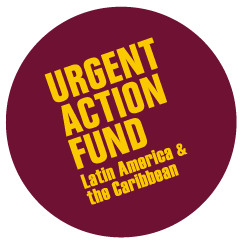Why this publication and why now?
The humanitarian and environmental crises the world was already facing and have worsened since the pandemic of Covid-19 started in 2020, make more than evident the need to rethink the logic of power and our relationship with the planet, concerning a multidimensional problem rooted in the current models of life and production. The effects of the pandemic were and continue to be highly differentiated, reflecting deeply rooted structural inequalities in our region, framed by differences in access to public services between urban and rural populations and as well as by class, race, and gender.
However, far from rethinking the destructive dynamics that brought us to this moment, established state and economic powers suggest that economic recovery based on the exploitation of nature are key to overcoming this multidimensional crisis. In Latin America, development discourse is gaining strength again and is now portrayed as sustainable, with a view towards deepening the extractive model, which has been chosen as the prime economic path by most countries of our region.
This means that a new wave of possible threats to peoples and communities of the region is starting, or rather gaining renewed strength as it has never fully stopped, even in times of quarantine. With this publication, FAU-AL seeks to contribute to the understanding of the economic context of the countries in Latin America and the Caribbean and to share useful information for women’s organizations and movements related to the financial dynamics contributing to the intensification of extractive activities in their territories, as well as the plans of governments that support and facilitate these projects.
It is necessary to continue investigating the dynamics of the extractive industry. Although alternatives to the damage created by extractivism are proposed at the global level, and primarily related only to the environment, new proposals continue to imply the exploitation of territories, the loss of communities’ ability on self-government, along with the destruction of cultures and ways of life for many communities in our region, and for the Global South in general.
We know that women defenders are the primary experts on how extractive industries operate at the local level, however, their efforts to hold corporations accountable for the damage they cause often go unanswered, while at the same time they receive no support from public bodies that are responsible for guaranteeing their rights. There is a large gap between what moves women to act for their territories and the interests that drive actors involved in extractive projects.
Knowing the universe of meanings through which such actors mobilize and organize presents the possibility to expand resistance strategies against the advance of extractivism, and to combat their capitalist, patriarchal and colonial operational logics. Our objective is to provide inputs to strengthen strategies of mobilization, organizing, network building and resistance.
It is important to us to focus on what motivates women to act for other women, their communities and their territories, recognizing the possibilities that arise from other ways of viewing life and relating to the land. This is the focus of the second part of this publication. Far from presenting a romantic and idealized vision, we show the transformative strength of women to build other realities that are palpable in their territories and that continue to respond to the contexts that oppress them, sowing other possibilities from their identities, knowledges and experiences of care of the land and life.
Copyright © 2021 All rights reserved for the Urgent Action Fund – Latin America and the Caribbean
